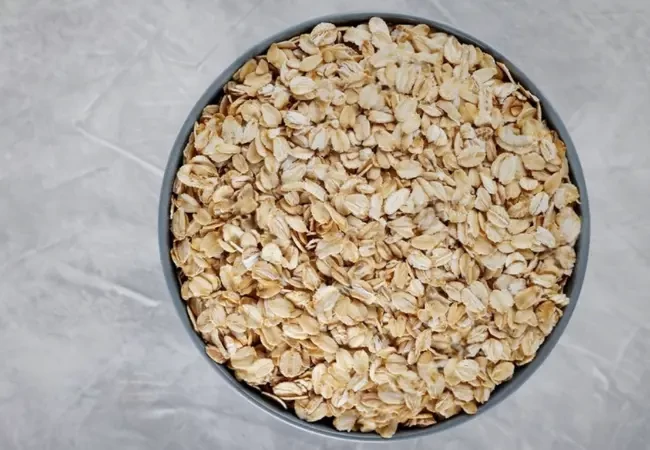Blog
Protein
and
Diabetes

The Importance of Proteins in a Diabetic Diet
 Medically reviewed by: Ms. Neetha Pratheep, Sr. Consultant - Nutrition and Dietetics - Written by Jasni Salim - Updated on 21/06/2024
Medically reviewed by: Ms. Neetha Pratheep, Sr. Consultant - Nutrition and Dietetics - Written by Jasni Salim - Updated on 21/06/2024Do proteins play a role in a diabetic diet plan for diabetes? Usually, when we talk about diabetes and meal planning, we focus on carbohydrates (carbs). Diabetes is often called "sugar" in everyday language, and the link between sugar and diabetes is quite popular. Not just people with diabetes, but anyone who is health conscious talks about cutting carbs in their diet. Apart from these, we often overlook the importance of proteins.
Diabetes is a long-term condition that will change how your body turns food into energy. With diabetes, your blood sugar levels will get too high which leads to serious health issues like heart disease, stroke, blindness, and kidney disease. There are many ways to manage diabetes, and eating a healthy diet is important. A high-protein diabetic diet plan can be a good option for people with diabetes. Read more to know.
What is a High Protein Diet?
A high-protein diet will include a lot of protein and low carbs and fat. Protein is important for everyone but especially for people with diabetes.
Protein helps keep blood sugar levels stable. When you eat protein, your body breaks it down into amino acids, which are used to build and repair tissues like muscles.
Protein will also make you feel full which will help you eat less and lose weight. Weight loss is important for people with diabetes because it helps improve blood sugar control.
The Role of Protein in a Diabetic Diet
Protein is a key nutrient found in our cells and blood. It will help you with growth, energy, maintenance, and chemical reactions. Protein is also a building block for our bones, hair, nails, and skin. Healthy protein for diabetics is important for the reasons given below:
Protein Stimulates the Secretion of Glucagon and Insulin
A healthy protein for diabetics will help your body release insulin and glucagon. These hormones will keep blood sugar levels stable to prevent them from getting too high or too low.
Protein Consumption Helps with Diabetic Fatigue
Diabetes-related fatigue usually occurs due to high blood sugar levels. Keeping blood sugar stable will boost energy levels. A high-protein diet will help you to keep blood sugar stable and is one of the main nutrients along with carbs and fats that provide energy.
Muscle Maintenance and Health
Protein is crucial for muscle health. It will help grow new tissue, build muscle mass, and repair body damage. A 2021 study showed that 52% of diabetics who did not get enough protein had physical limitations. The study found that low protein intake might lead to muscle loss, falls, and other physical issues because protein is essential for building muscles.
High-Protein Diabetic Diet Controls Blood Sugar
Protein has a smaller effect on blood sugar levels compared to carbs. Protein will help stabilize blood sugar by slowing the absorption of carbs and sugars. Research shows that a high-protein diet can help people with diabetes control their blood sugar and lose weight. It will reduce post-meal blood sugar spikes and promote a feeling of fullness which helps prevent overeating and weight gain.
How Much Protein is Needed in a High Protein Diabetic Diet?
As per the Dietary Guidelines 2020 to 2025, people with diabetes should follow the same protein recommendations as the general population. Adults should eat at least 0.8 grams of protein per kilogram of body weight daily to make up 10% to 35% of their total calories. For example, if you weigh 165 pounds (75 kilograms), you should aim for at least 60 grams of protein each day.
The UK Food Standards Agency has a protein intake guide based on age which are as follows:
- 0 months to 1 year: 12.5 to 14.9 g
- 1 to 3 years: 14.5g
- 4 to 6 years: 19.7g
- 7 to 10 years: 28.3g
- 11 to 14 years: 42g
- 15 to 18 years: 55g
- 19 to 50 years: 55g
- Over 50 years: 53g
It is important to remember that these recommendations are for people with healthy kidneys. For your daily calories, 45% to 65% should come from carbohydrates and the rest from fat.
A recent study looked at how protein affects people with Type 1 diabetes when they do not eat carbs or fat. The study found that eating a lot of protein which is about 75 grams will significantly raise blood sugar levels a few hours after eating.
How Can You Follow a High Protein Diet?
It is important to talk to your doctor or a registered dietitian to consider the best protein for diabetics. They will help you make a diet plan that suits your needs. Below are some tips for following a high-protein diet:
- Choose lean protein sources: You can opt for chicken, fish, beans, and tofu.
- Include protein at every meal: Try to have some of the best protein for diabetics in every meal and snack to feel full and satisfied.
- Spread your protein intake throughout the day: Do not eat all your protein in one meal. Instead, spread it out to keep your blood sugar levels stable.
- Limit your intake of processed meats: Avoid processed meats like bacon, sausage, and ham as they are high in saturated fat and sodium and they can raise cholesterol and blood pressure.
- Choose healthy fats: Use olive oil, nuts, and avocados to improve your cholesterol levels.
- Eat plenty of fruits and vegetables: Fruits and vegetables are low in calories and high in nutrients and fiber which will help keep you full.
- Drink plenty of water: Water is vital for good health which will help you to remove toxins and keep your kidneys healthy.
Conclusion
A high-protein diet will be good for people with diabetes. It will improve blood sugar control, help with weight loss, and benefit heart health. If you are thinking about trying a high-protein diet, you can talk to your doctor or a registered dietitian. They can help you create a diet plan that suits your needs.
You can go to Silverline Hospital where you will find a best team of diabetologists in Kerala. We have top diabetologists who can diagnose and treat diabetes at any stage. Our team includes specialist doctors, dietitians, physiotherapists, and psychotherapists who work together to manage diabetes effectively.

More Blogs
-

Sudden Erectile Dysfunction: It's More Than Just Hormones
Experiencing sudden erectile dysfunction? It could signal deeper health issues beyond hormonal imbalance.
-

Oats Are Also Carbohydrates: Here's Why Protein-Based Foods Are the Better Choice
Think oats are healthy carbs? Discover why protein-based foods are a smarter choice for sustained energy and balanced nutrition.
-

How Vaccines Help Protect Diabetics From Infections
Discover how vaccines protect diabetics from infections by boosting immunity and preventing serious complications.
-

Vaccinations for Diabetics: Flu, Pneumococcal, Tdap & More Explained by Experts
Stay protected with the right vaccines. In this expert-led guide, learn why flu, pneumococcal, Tdap, and other vaccines are essential for people with diabetes.
-

Struggling with Erection or Early Ejaculation? Here's How to Get Help
Struggling with erectile dysfunction or premature ejaculation? Learn common causes, treatments, and how to seek professional help with confidence.


 Home
Home  Booking
Booking
 Chat Now
Chat Now  Call Us
Call Us